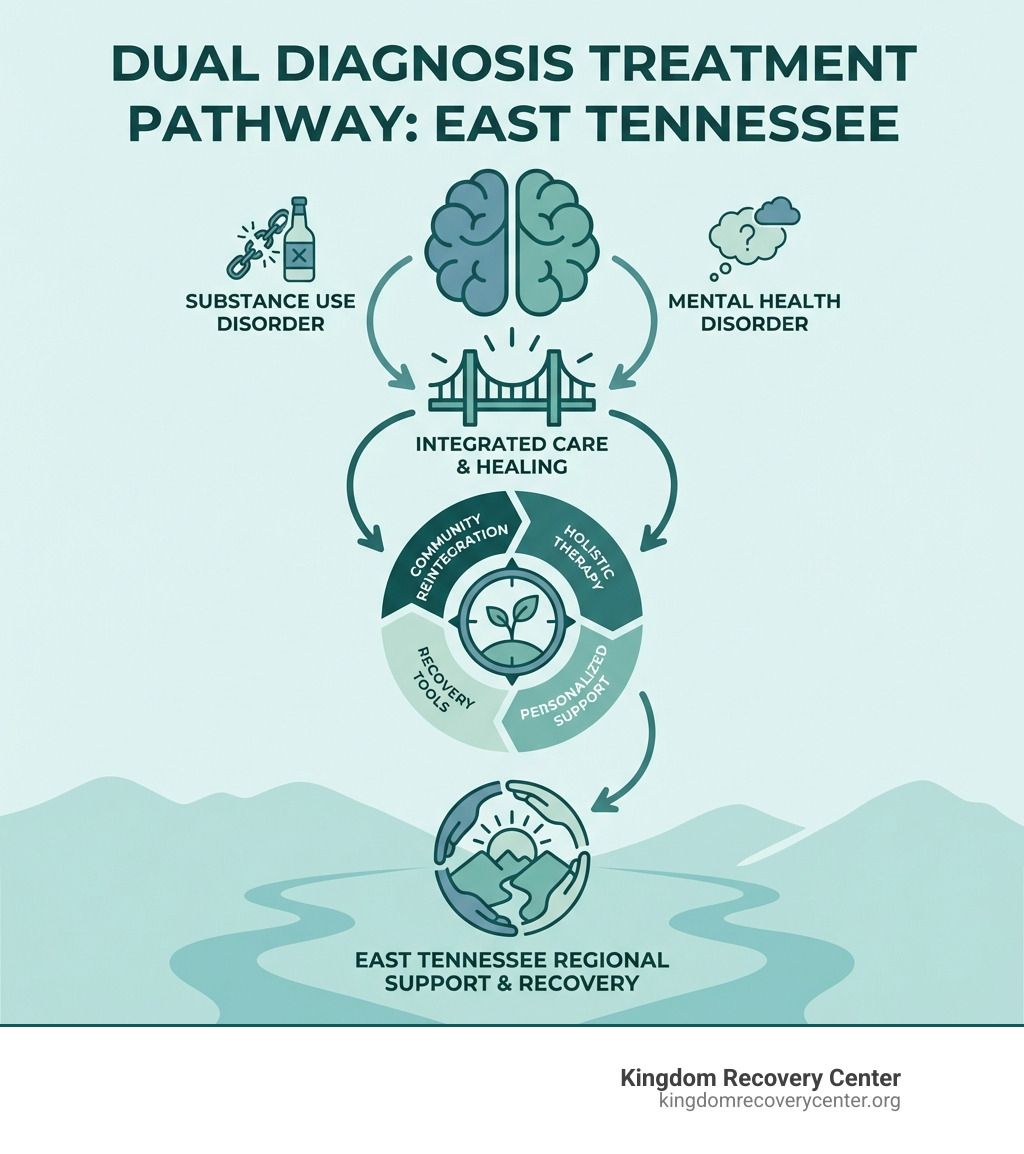
Exploring Holistic Approaches to Addiction Recovery in Tennessee
A resident of Tennessee once sought help after multiple unsuccessful recovery attempts. The blog post outlines holistic approaches to addiction recovery, addressing alternative therapies for addiction recovery and mindfulness recovery techniques. It shows how faith-based rehab programs and personalized care provide lasting support. Readers will gain actionable insights into holistic addiction recovery to help overcome obstacles and achieve sustained sobriety.

Key Takeaways
- Holistic addiction treatment supports recovery by addressing mind, body, and spirit
- Faith-based healing and nutritional counseling integrate with mindfulness therapies at Kingdom Recovery Center
- Alternative therapy methods complement traditional treatment for sustainable sobriety
- Personalized assessment and also community support ensure tailored treatment for addiction recovery
Understanding Holistic Approaches to Addiction Recovery in Tennessee

This section explains holistic addiction treatment, focusing on key principles like reiki and vitalism. It discusses the role of religion and therapy while integrating Western and alternative methods to support recovery. The goal is to provide clear insights into defining and also practicing holistic strategies for sustainable sobriety.
Defining Holistic Addiction Treatment
Holistic addiction treatment is a method that addresses the individual’s unconscious and conscious needs, integrating modalities such as reflexology to balance physical signals and promote recovery. This approach serves as a useful tool that aligns the body’s yin and yang, resonating with concepts found in holistic health practices endorsed by the national health service.
This treatment model recognizes life stages like menopause as critical periods for intervention, emphasizing that recovery requires thorough attention to all facets of well-being. Institutions in Tennessee use these diverse strategies to provide a comprehensive framework that supports sustainable sobriety and also overall health balance.
Key Principles of Holistic Recovery
The approach recognizes that sustainable recovery requires an integrated focus on mind, body, and spirit. Emphasizing awareness and relaxation techniques, this model supports enduring change while acknowledging that even the placebo effect can influence the mood and also perceptions during healing. Below is a representation of the process steps:
- Establish awareness through mindfulness practices
- Implement relaxation exercises to manage stress
- Monitor improvements in mood via practical evaluations
- Utilize controlled advertising to inform and educate about treatment options
- Assess the impact of placebo elements in therapy sessions
The recovery strategy further utilizes actionable insights and first-hand expertise to guide clients toward consistency in practice. By blending structured assessments with personalized support, practitioners help individuals build techniques that stabilize mood and foster a balanced state through reliable methods and also evidence-based results.
Integrating Western and Alternative Therapies
The integration of alternative medicine and conventional practices offers a blended pathway to recovery in the united states, where clients receive support through techniques such as acupuncture combined with nutrition guidance. The approach is designed to address physical and emotional needs, providing practical examples of healing that incorporate traditional herb-based care and structured wellness programs.
Clinical experts at specialized centers in Tennessee apply both Western and also complementary methods to assist individuals in achieving sustainable recovery. By incorporating actionable insights—from detailed dietary planning to targeted acupuncture sessions—this model ensures that clients receive balanced care focused on overall well-being.
Alternative Therapies for Addiction Recovery

This section covers art therapy benefits, music therapy as a recovery tool, nature therapy with outdoor experiences, and acupuncture in healing. It emphasizes managing pressure, blood pressure, and progressive muscle relaxation while addressing misinformation and the role of primary health care in holistic recovery models.
Art Therapy and Its Benefits
Art therapy provides a practical method for addressing the impact of substance use such as methamphetamine, and also the complications of malnutrition, allowing patients to express emotion through creative channels while reinforcing the concept of holistic healing:
| Element | Description |
|---|---|
| Art Therapy | Utilizes creative expression to process emotion and stress |
| Gong | Incorporates sound elements to soothe the mind and body |
| Concept | Focuses on integrating body, mind, and also spirit for sustainable recovery |
| Methamphetamine | Addresses the challenges related to substance abuse impacts |
| Malnutrition | Highlights the need for comprehensive nutritional support |
Art therapy complements holistic recovery by engaging individuals in structured creative activities that help them manage emotion and reduce stress, offering a unique avenue for healing that is especially beneficial for patients transitioning from substances like methamphetamine. This approach equips clients with actionable insights and practical techniques to improve overall well-being while addressing underlying nutritional issues such as malnutrition.
Music Therapy as a Recovery Tool
Music therapy offers a practical tool for addressing addiction recovery by improving brain function and supporting the healing process. The approach helps clients understand information about nutrient balance during recovery, regulate opioid use, and foster overall healing through the rhythm and also structure of musical sessions:
- Improved brain function through rhythmic stimuli
- Balanced opioid regulation via structured sessions
- Reinforcement of nutrient intake for overall health
- Actionable information on managing recovery effectively
- Direct contribution to personalized healing strategies
Clinical professionals in Tennessee find music therapy to be a useful component of holistic addiction treatment, offering clients a simple yet effective method to cope with stress and build resilience. The integration of music within recovery programs provides clear value by delivering practical techniques that complement traditional and also alternative therapies for long-term healing.
Nature Therapy and Outdoor Experiences
Nature therapy in Tennessee offers clients a refreshing break from daily stress, aiding in the management of headaches and nausea through exposure to outdoor spaces. Clinical professionals observe that incorporating yoga sessions during these outdoor experiences can play a role in maintaining physical well-being, supported by guidelines outlined in local policy.
Outdoor experiences introduce a tangible method of relapse prevention where participants benefit from fresh air and also structured activities such as moxibustion alongside yoga sessions that target physical discomfort. This practical method provides a series of steps for recovery progress and addresses common symptoms effectively:
- Utilization of yoga to alleviate physical tension
- Implementation of controlled moxibustion to ease headache discomfort
- Adherence to established policy guidelines for safe outdoor therapy
- Monitoring of nausea to adjust daily recovery practices
Acupuncture and Its Role in Healing
Acupuncture offers a natural method to improve the body’s biology and reduce injury-related pain, providing a practical tool in addiction recovery programs. This targeted approach supports working memory, enhances physical resilience, and also reflects a compassionate treatment grounded in kindness:
- Reduction of physical discomfort
- Strengthening nerve responses
- Support for working memory
Clinical experts observe that acupuncture addresses the everyday reality of chronic pain while complementing overall wellness strategies. This method integrates seamlessly within holistic programs, meeting the needs of individuals seeking effective, science-based recovery solutions.
Mindfulness Recovery Techniques

Mindfulness in addiction recovery integrates science and holism, offering methods like meditation, acupressure, and also techniques using electroencephalography to enhance emotional well-being. This section covers meditation practices, resilience building, and the role of ear therapy to support recovery, providing practical insights into mindfulness benefits for sustainable sobriety.
Introduction to Mindfulness in Addiction Treatment
Mindfulness in addiction treatment offers a structured approach that integrates practical exercises with data-driven analysis, providing a reliable tool for managing stress and improving overall well-being. Clinical professionals have observed improvements in blood circulation and muscle relaxation during sessions that include aromatherapy, underscoring the tangible benefits of these techniques.
The use of mindfulness practices in Tennessee recovery programs also incorporates modern tracking systems, such as php-based solutions, to monitor progress and support personalized care plans. Experts report that integrating mindfulness with techniques aimed at muscle tension relief and controlled blood flow assists clients in overcoming challenges and also building resilient pathways to recovery.
Benefits of Mindfulness for Emotional Well-Being
Mindfulness techniques positively impact emotional well-being by strengthening memory and sharpening the mind, supported by improvements in the anterior cingulate cortex and also cingulate cortex efficacy:
- Improved memory retention
- Enhanced focus and also clarity
- Balanced emotional responses
Clinical professionals observe that combining regular mindfulness exercises with structured recovery programs not only boosts mind performance but also reinforces the efficiency of neural pathways, offering practical benefits for sustainable recovery.
Meditation Practices for Recovery
Meditation practices for recovery serve as a cornerstone in holistic approaches to addiction treatment in Tennessee, offering clients a viable method to improve cognition and mental resilience. Clinical professionals note that structured meditation sessions can work in tandem with art therapy, allowing patients to experiment with mindfulness techniques that support balanced recovery, much like how ancient practices in China and also careful assessments of mercury levels have informed traditional wellness methods.
Guided meditation sessions are used to calm the mind and foster a reflective state, which contributes to more stable cognition during the recovery process. Experts report that meditation creates an environment where practical experiments with art therapy and also other modalities encourage clients to build personalized strategies that support long-term sobriety, ensuring that each participant benefits from a comprehensive, science-informed approach.
Building Resilience Through Mindfulness
Building resilience through mindfulness empowers individuals to manage stress and strengthen health during recovery. Practitioners incorporate qigong techniques alongside neuroscience-based practices to help clients improve coping strategies when confronting drug-related challenges.
Clinical experts recommend structured mindfulness exercises to enhance mental focus and build sustainable resilience. The integration of traditional qigong and also modern neuroscience offers practical coping methods that support overall health in addiction recovery programs.
Personalizing the Holistic Recovery Experience

Individual needs drive treatment, requiring careful assessment of addictive behavior and tailored approaches that may include manual therapy targeting bone and vitamin balance. Multidisciplinary teams collaborate via internet resources and also direct consultations to set realistic milestones. This approach refines therapy by integrating personalized care, ensuring each client receives focused strategies for sustainable recovery.
Assessing Individual Needs for Tailored Treatment
The process of assessing individual needs involves careful evaluation of factors such as schizophrenia indicators, mental distress levels, and sleep patterns. The assessment process includes:
- Analysis of schizophrenia-related symptoms
- Provision of tailored education on mental distress management
- Monitoring of sleep quality and also disturbances
- Review of medicine use and interactions
Practitioners review each case with first-hand expertise, ensuring that education and medicine guidelines are applied to alleviate mental distress and also optimize sleep quality. This method offers clear, actionable insights tailored to meet each individual’s unique recovery requirements.
Collaborating With Multidisciplinary Teams
Collaboration among multidisciplinary teams plays a critical role in addressing the challenges of addiction recovery in Tennessee. Clinical professionals at hospital settings routinely combine expertise from mental health, nutrition, and mindfulness therapy to design personalized strategies that alleviate shame and also assist clients in managing stress management effectively, sometimes communicating via email to share progress and insights.
Staff members work closely with various specialists who provide first-hand expertise to adapt treatment plans based on individual needs, ensuring each patient receives tailored care. The inclusion of mindfulness therapy and proactive communication through email sessions reinforces a supportive environment where stress management techniques are refined to overcome feelings of shame and also promote sustainable recovery.
Setting Realistic Goals and Milestones
Establishing realistic goals provides clear value in the holistic recovery experience by offering structure and also clarity for overcoming challenges, including childhood trauma. Health insurance benefits can support clients in accessing resources as they progress through each recovery step.
Practitioners encourage clients to set measurable milestones that directly enhance their recovery experience, much like applying oil to machinery for smooth operation:
- Define short-term, achievable targets
- Monitor progress with regular evaluations
- Address underlying issues such as childhood trauma
- Utilize available health insurance benefits for comprehensive support
Success Stories From Holistic Recovery Programs in Tennessee

Case studies of transformational journeys, testimonials from participants, and community impact highlight the value of holistic recovery in Tennessee. Success stories reveal reduced toxicity, improved physical fitness, alleviation of fear and insomnia, and insights approved by the food and Drug Administration. Each section offers practical examples and expert perspectives on effective addiction treatment.
Case Studies of Transformational Journeys
Case studies from Tennessee reveal individuals with bipolar disorder and significant risk factors experiencing notable improvements in their overall health. Professionals note that structured physical activity, focused breathing techniques, and proper skin care contribute to reduced stress levels and also increased stability during recovery.
Clinical experts document how personalized plans that address unique challenges have led to transformative journeys in holistic recovery programs. Incorporating practices such as monitored breathing sessions, tailored physical activity routines, and guidance for managing bipolar disorder, clients have reported improved resilience and also a strengthened ability to manage risks effectively.
Testimonials From Participants
Many participants share their experiences with holistic recovery programs in Tennessee, highlighting improvements noted during clinical trial phases and emphasizing the role of physical therapy in their cure process and overall learning; one individual mentioned that even adjustments in medication, such as reducing adderall dependency, served as a turning point in their recovery journey:
| Aspect | Experience |
|---|---|
| Clinical Trial | Documented improvements in recovery metrics |
| Physical Therapy | Key role in restoring balance and promoting well-being |
| Cure Process | Focus on holistic strategies for sustainable outcomes |
| Learning | Practical insights and also awareness gained through sessions |
| Adderall Reduction | Noted improvement in mental clarity and stability |
Other testimonials emphasize practical applications of physical therapy and structured clinical trial frameworks that have contributed to significant recovery milestones; experts observe that this integrated approach, combining targeted learning with personalized treatment, effectively addresses long-standing concerns and also guides participants toward a dependable cure.
Community Impact of Holistic Approaches
The community benefits from holistic recovery programs through the integration of targeted therapy and traditional Chinese medicine techniques that complement modern nursing practices. Local practitioners share that the inclusion of proper food choices significantly boosts endorphins and also overall well-being, resulting in improved recovery outcomes for participants.
Healthcare professionals in Tennessee emphasize how community support stems from personalized treatment plans grounded in proven methods including targeted therapy and traditional Chinese medicine. Their first-hand expertise demonstrates that combining practical nutritional guidance with dedicated nursing care and also natural endorphin stimulation offers clear advantages for sustained recovery.
Finding Holistic Addiction Recovery Centers in Tennessee

Key points include guidelines for selecting programs based on compassion and naturopathy, thorough evaluation of facilities and treatment options rooted in wisdom and energy medicine, and a clear understanding of insurance coverage and also financial considerations, while also considering homeopathy services. Each topic offers practical insights to ensure a well-informed choice in holistic addiction recovery in Tennessee.
Criteria for Choosing the Right Program
Clinicians advise prospective clients to assess centers based on structured protocols that support immune health. Furthermore, they should seek effective management strategies, especially for fentanyl misuse. Prospective clients gain from expertise similar to that of the Mayo Clinic, which offers clear guidance on using dietary supplements in recovery efforts:
- Structured support for chemical dependency treatment
- Protocols for immune system strengthening
- Guidance on incorporating dietary supplements effectively
- Safety measures aligned with practices from the mayo clinic
Professional recommendations suggest that centers with clear and practical evaluation criteria offer the best support for individuals seeking long-term recovery. Evaluators focus on program structure, client management protocols, and actionable recovery strategies, ensuring that every treatment plan is tailored and also effective.
Evaluating Facilities and Treatment Options
Evaluating facilities and treatment options requires a detailed examination of programs that address substance dependence while offering diverse recovery methods. Professionals at these centers integrate hypnosis and music therapy to help clients manage pain. Moreover, each treatment modality is supported by clear expertise and practical insights designed for community benefit.
Clinicians advocate for assessing centers that not only provide innovative approaches but also foster community engagement and individualized care. The evaluation process focuses on reviewing recovery protocols that incorporate hypnosis, music therapy, and also effective pain management strategies, which enhances the overall recovery experience for individuals dealing with substance dependence.
Understanding Insurance Coverage and Financial Considerations
Experts advise that understanding insurance coverage requires assessing how well a program supports physical recovery. It should also incorporate mind-body techniques like tai chi. They note that determining the right dose of holistic treatments is crucial. Additionally, addressing the root of addictive habits is essential when choosing a recovery center that accepts various insurance plans.
Clinicians emphasize that clear insurance information allows clients to budget effectively while integrating complementary therapies to support sustainable progress. They demonstrate that accurately calculating costs and incorporating them into treatment plans, like tai chi sessions, is essential. This approach enables recovery centers to effectively address the root causes of addiction.
Conclusion
Holistic approaches to Addiction Recovery in Tennessee address the full spectrum of an individual’s needs by blending traditional methods with alternative therapies. Programs incorporate faith-based healing, nutritional counseling, mindfulness techniques, and personalized care to build strong foundations for long-term sobriety. Clinicians rely on structured evaluations and also community support to help individuals manage stress and improve overall well-being. This integrated model proves valuable in guiding clients toward a balanced recovery that positively impacts both body and mind.



